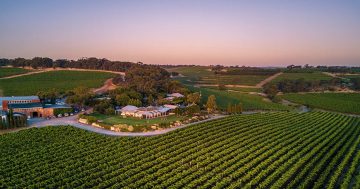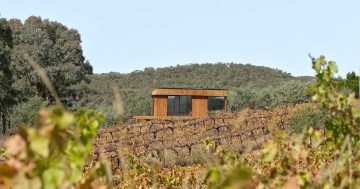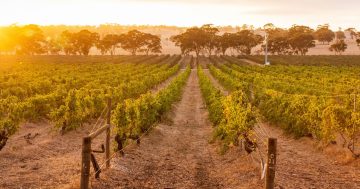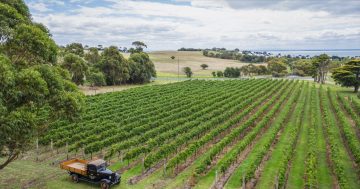By Christine Salins.
In line with a growing eco-consciousness, more and more consumers are taking environmental considerations into account when buying wine.
Sustainability initiatives that wineries may have in place range from using lighter glass bottles to reduce their carbon footprint, building with recycled materials, using solar power, planting drought-resistant grape varieties, growing organically and reducing the use of chemicals.

Pewsey Vale Riesling
Rowan Dean, VP Commercial Development Asia Pacific for Constellation Brands, believes that post-Covid, sustainability will be an even more important issue than it was before, the pandemic raising a desire amongst consumers for “things that make me feel good, things that are good for me, things that are good for the earth”.
Tapping into the trend, Constellation late last year launched its Round Theory brand, its vision “to make a wine with the least impact on the planet as possible”.
Featuring four varietals – Rosé, Sauvignon Blanc, Pinot Gris and a White Field Blend – the brand was crafted from the ground up, with attention to everything from the way the grapes are grown, to the packaging and carbon offsets.
Sourced from Sustainable Winegrowing New Zealand accredited vineyards, the wine comes in squat glass bottles that are 30% lighter, 35% shorter and made from clear glass for improved recyclability and a lower carbon footprint.
Here in Australia, a similar sustainability accreditation program has been introduced to encourage grape growers and winemakers to improve their sustainability through environmental, social and economic practices.
Sustainable Winegrowing Australia is a collaboration between The Australian Wine Research Institute, Wine Australia and Australian Grape & Wine. One of the first to display its credentials is Eden Valley’s Pewsey Vale Vineyard, whose holistic approach ranges from organic and biodynamic principles in the vineyard to minimal winemaking intervention.
“We believe that our sustainable practices, and active encouragement of biodiversity and natural balance, result in wines that are more consistent and better reflect the terroir of Pewsey Vale,” says winemaker Louisa Rose. “The vineyard microbiology flourishes and wines can be made using only the yeast that come in on the grapes from the vineyard.”
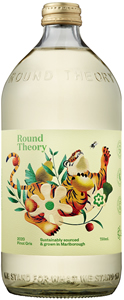
Round Theory Pinot Gris
Winemakers Dru and Nicole Reschke have long had a vision to create a sustainable eco-system in their vineyards. Their Koonara brand, established in 1988, was the first vineyard in Coonawarra to be certified to Australian Organic Standards.
“We have not used any pesticides or herbicides in our Coonawarra vineyards for over a decade, as it can rob the soil of nearly all the good micro-fungi,” says Dru.
Living in a homestead surrounded by vineyards drove the Reschkes’ vision of creating a sustainable eco-system, but consumers are richer for it.
Round Theory 2020 Pinot Gris, $23: Lively, refreshing and aromatic, bursting with nashi pear and apple. It has a hint of spice that pairs nicely with pad Thai and many Asian dishes.
Pewsey Vale Vineyard 2020 Riesling: Riesling is the sole focus of this Eden Valley vineyard established in 1847. Little wonder it is so highly esteemed. With soft natural acidity and generous lemon-lime notes, it’s a perfect match for oysters.
Brokenwood Chardonnay, $30: Like Pewsey Vale, Hunter Valley winery Brokenwood is a certified member of Sustainable Winegrowing Australia. Its Chardonnay is a personal favourite, replete with stonefruit and tropical fruit, a touch of vanilla and subtle oak. Drink it with anything!
Koonara 2019 Angel’s Peak Shiraz, $28: Coonawarra is famous for Cabernet but it also produces great Shiraz. Vibrant with chocolate and caramel notes, this one is rich and full-bodied with beautifully balanced French oak. Koonara wines are pesticide free, low in sulphur, have low residual sugar and are vegan friendly.



